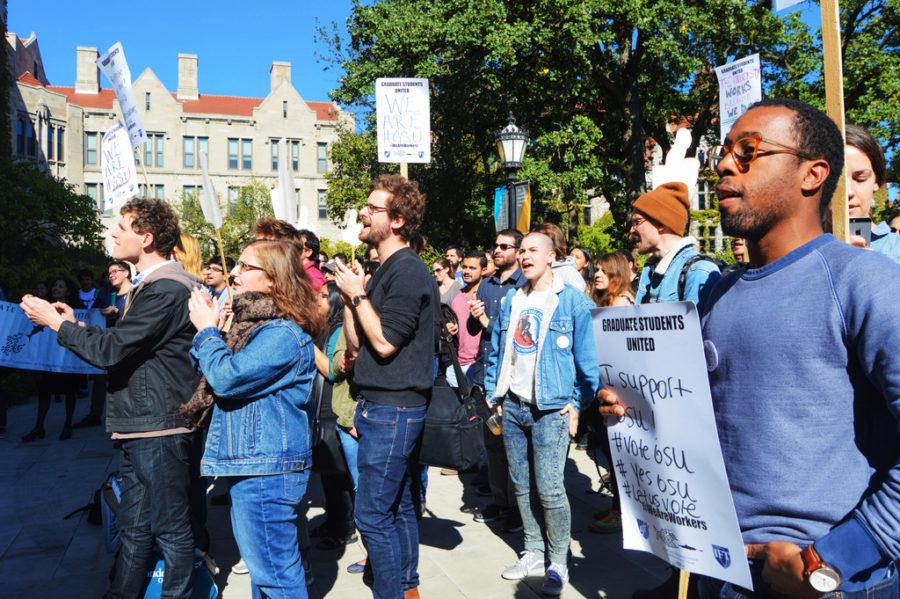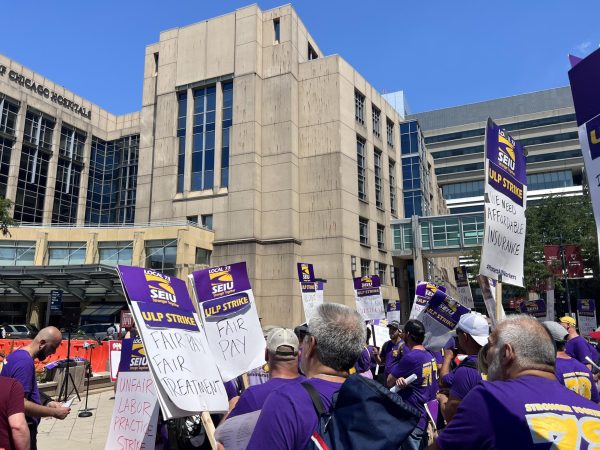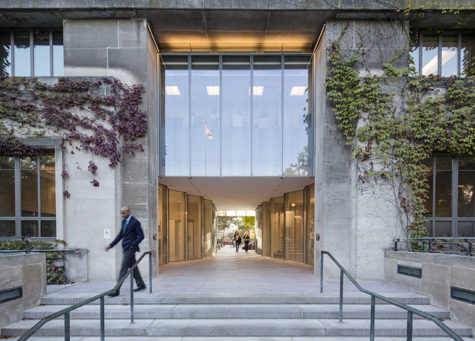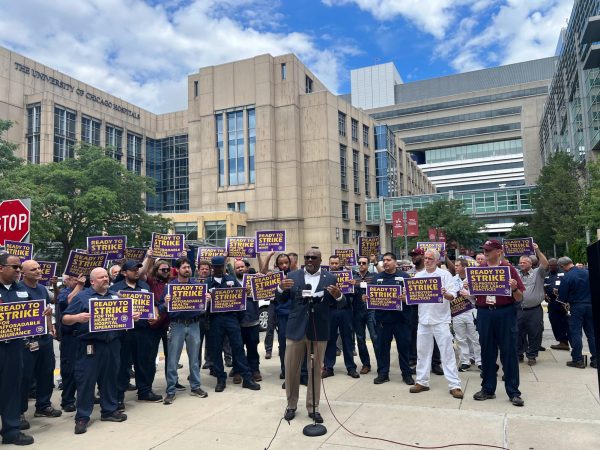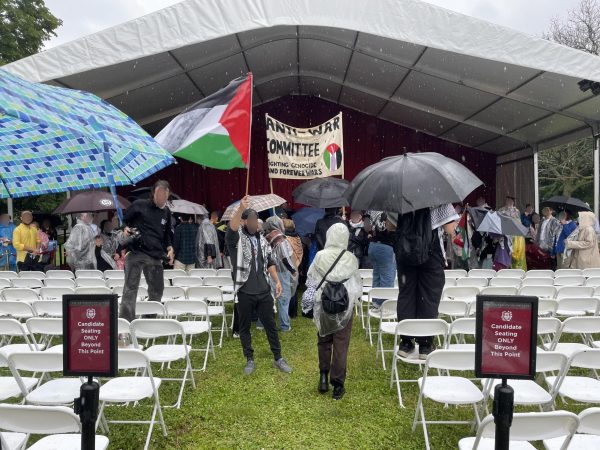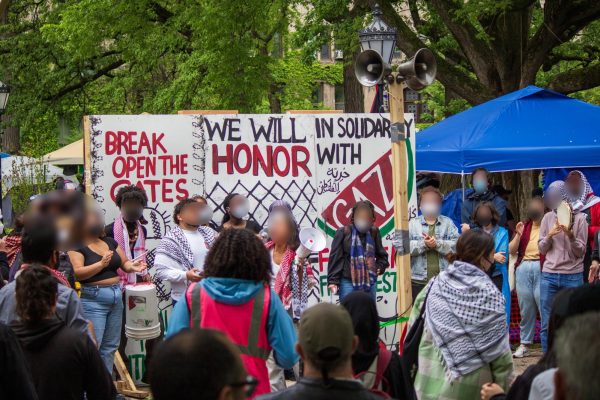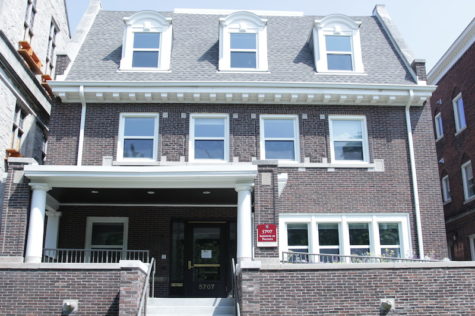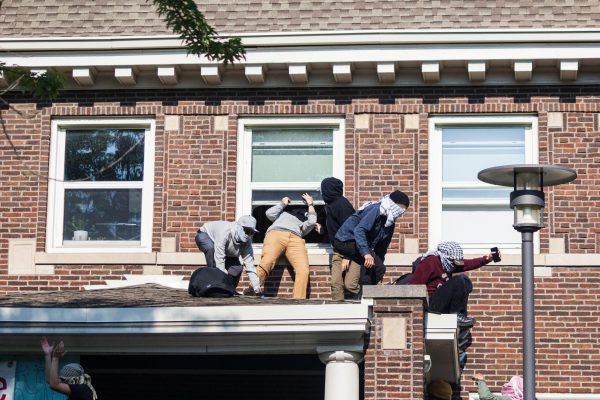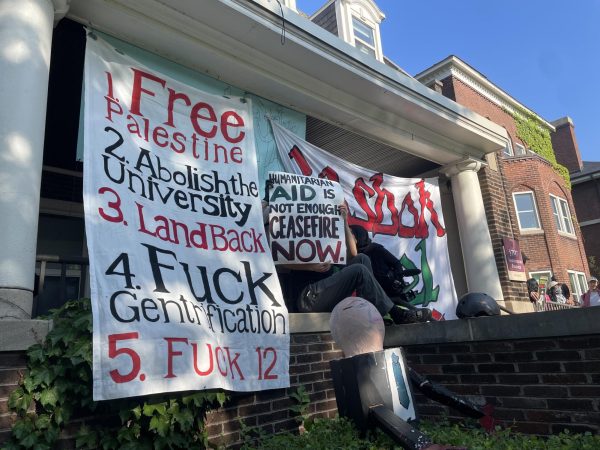GSU-UE to File for NLRB Election to Force University Recognition
GSU-UE will file for an election with the National Labor Relations Board after the University formally stated its opposition to recognizing the union.
Graduate students rally for unionization in front of Levi Hall on the Monday before their first unionization vote in 2017.
November 29, 2022
This afternoon, Graduate Students United–United Electrical Workers (GSU-UE) announced that it would be filing more than 2,000 union cards on Wednesday, November 30, with the National Labor Relations Board (NLRB), the federal body that adjudicates employer-union disputes, for a union recognition election.
In a written statement to The Maroon, music department graduate student and GSU-UE General Secretary Natalie Farrell said, “We are excited to affirm the power we have built together by voting for our union in the NLRB election next quarter.”
If an organization’s employees vote to form a union in an NLRB election, their employer must recognize and negotiate in good faith with that union.
GSU-UE’s announcement came after a University-wide email from Provost Ka Yee Lee this afternoon that formalized the administration’s opposition to graduate student unionization. Lee’s email came after a November 16 letter submitted by GSU-UE requesting voluntary recognition by University administrators. GSU-UE had collected signed union cards from a majority of graduate students prior to sending the letter.
In a separate statement to The Maroon, the University said that it had formally declined GSU-UE’s request for recognition.
In her email, Lee wrote, “The University’s position is that graduate student unionization is likely to bring more disadvantages than advantages in the form of additional costs, time, and bureaucracy. We currently engage with graduate students through many direct channels, which we believe are more flexible and responsive to students’ varied needs and better suited to our graduate degree programs than a collective bargaining agreement would be.”
The more than 2000 graduate students who have signed GSU-UE union cards disagree.
“While we would prefer that the administration recognized our supermajority now, we’re excited to move forward towards voting to secure a living wage, comprehensive dental and vision care, international student support, professional standards and equitable policies for work in our labs and classrooms, and real decision making power over our working conditions by filing for an election with the NLRB tomorrow,” Farrell wrote.
“Unionizing is the only way to guarantee [graduate students] legally-enforceable negotiating power to win the tools that we need to be outstanding teachers and researchers with a healthy work environment and fair compensation.”
Lee’s email linked to a page on the Provost’s website titled “Graduate Student Unionization: Join the Conversation.” The website reiterates the University’s opposition to graduate student unionization and presents information on the unionization process.
The site says “Union members at the University of Chicago might expect to pay about $500 in annual dues.” Focusing on union dues is a tactic commonly used by employers seeking to prevent unionization, including Amazon and Delta Airlines.
GSU-UE’s website states that 1.44 percent of a member’s pay goes toward UE union dues, equivalent to $475.20 for a graduate student receiving the minimum stipend amount of $33,000.
GSU-UE—formerly known as GSU prior to its affiliation with national union United Electrical, Radio, and Machine Workers of America (UE)—has been campaigning for recognition from the University since its inception in 2007.
Lee’s email echoes the University’s long-standing opposition to unionization among graduate students. When graduate students voted to unionize in 2017, the University refused to recognize the results and appealed to the NLRB. Amid another campaign for recognition among graduate students in 2019, then provost Daniel Diermier wrote, “A collective bargaining agreement would likely create an environment of standardization without room for differentiation.”


